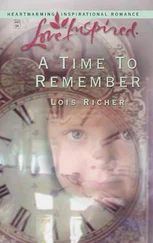Alexander Todd - A Time to Remember
Здесь есть возможность читать онлайн «Alexander Todd - A Time to Remember» весь текст электронной книги совершенно бесплатно (целиком полную версию без сокращений). В некоторых случаях можно слушать аудио, скачать через торрент в формате fb2 и присутствует краткое содержание. Город: Cambridge, Год выпуска: 1983, ISBN: 1983, Издательство: Cambridge University Press, Жанр: Химия, Биографии и Мемуары, на английском языке. Описание произведения, (предисловие) а так же отзывы посетителей доступны на портале библиотеки ЛибКат.
- Название:A Time to Remember
- Автор:
- Издательство:Cambridge University Press
- Жанр:
- Год:1983
- Город:Cambridge
- ISBN:0 521 25593 7
- Рейтинг книги:3 / 5. Голосов: 1
-
Избранное:Добавить в избранное
- Отзывы:
-
Ваша оценка:
- 60
- 1
- 2
- 3
- 4
- 5
A Time to Remember: краткое содержание, описание и аннотация
Предлагаем к чтению аннотацию, описание, краткое содержание или предисловие (зависит от того, что написал сам автор книги «A Time to Remember»). Если вы не нашли необходимую информацию о книге — напишите в комментариях, мы постараемся отыскать её.
A Time to Remember — читать онлайн бесплатно полную книгу (весь текст) целиком
Ниже представлен текст книги, разбитый по страницам. Система сохранения места последней прочитанной страницы, позволяет с удобством читать онлайн бесплатно книгу «A Time to Remember», без необходимости каждый раз заново искать на чём Вы остановились. Поставьте закладку, и сможете в любой момент перейти на страницу, на которой закончили чтение.
Интервал:
Закладка:
Broadly speaking, the so-called Todd Report was well received, and had a considerable impact in the United Kingdom. Perhaps more surprisingly, it aroused considerable interest not only in Commonwealth countries in which medical education is mainly along British lines, but also in the United States where the pattern is different. The degree to which any of our ideas have been adopted there (if at all) is unknown to me, but I recall the great interest shown by professors and deans from many of the American medical schools when I presented our findings to them at a large meeting of their Association in Houston in November 1968. I found that there was much more on which we could agree than I had expected. But perhaps I should not have been surprised; medical education and medical practice are under the same pressures everywhere. Every new discovery in medicine creates a demand for medical care which did not exist before. This is a situation where invention becomes the mother of necessity, and the demand for more and more health care is insatiable. Under these circumstances all countries will inevitably be driven along the same paths in their efforts to deal with it, and the patterns of medical education will become more and more uniform as a result.
During the 1960s I did a great deal of overseas travel, visiting and lecturing in many different countries. It was during this period that I first visited Africa. In 1965 I was invited to visit Accra where my former pupil, J. A. Quartey, had become Professor of Chemistry in the University of Ghana. I was guest of the recently formed Ghana Academy of Science, and my visit was timed to coincide with that of Queen Elizabeth and the Duke of Edinburgh, so that I saw Accra very much en fete, living, as I did, downtown in the Ambassador Hotel. Admittedly, the festive spirit was not very evident among the rather silent and gloomy Russian technicians who seemed to make up most of the company there, but we had flags, fireworks, etc. Kwame Nkrumah was still in power, and I met him once or twice; I was not over-impressed for, although he seemed to me to be an astute politician and something of a demagogue, he had a rather low intellectual ceiling. As a result, he was a ready prey to the rather shady bunch of sycophantic advisers who were around him. He certainly had some foolish ideas. On one evening while I was there, a great banquet was arranged (for men only as I recall it) at which the Duke of Edinburgh was to be formally invited to be Patron of the Ghana Academy of Science, and I was to be admitted as an Honorary Member. On the morning of the day appointed for the ceremony I was breakfasting on the terrace at the Ambassador, when Joe Quartey arrived, accompanied by Professor Ernest Boateng who was, I think, Secretary of the Academy at the time, and who appeared very upset. He told me he had just come from Nkrumah, who had told him that he had decided that the Academy should become a much grander body, and that he should lead the way; accordingly he, Nkrumah, would announce at the banquet the creation of the Pan-African Academy of Science with himself as President, and ask the Duke to be Patron. Boateng, like me, thought that to do such a thing without prior international consultation would infuriate the other African countries, and that the Duke would certainly have to decline the invitation to everyone's embarrassment. We decided we had to take some action, but found that Nkrumah had already set off with the Queen to open the new Volta Dam; the matter had therefore to wait until the evening. Fortunately, between Nkrumah's return to Accra and the banquet, we got him to change his mind and the banquet went ahead as planned; no Pan-African Academy was mentioned, but it was a near thing!
I greatly enjoyed that first visit to Ghana, despite the undertone of discontent with the regime that I found among the academics and other educated people. The people seemed gay and friendly, and the enormous market-mammies in the Accra market had to be seen to be believed. Apparently, the local inhabitants admire the physical proportions of these ladies as much as their business abilities, and find European women rather feeble looking. At the time I speak of, my friend Joe Quartey had a houseboy (actually a middle-aged man) who looked after Joe and his wife Patience in their house on the edge of the university campus at Legon, which is, I suppose, three or four miles from Accra. The houseboy, who had never been as far as Accra in his life, decided he would like to see the Queen, and so he set off early in the morning and walked to Accra to see the Queen perform some ceremony. He duly returned in the evening and resumed his duties without making any comment on his day's outing. The following morning Joe asked him if he had indeed seen the Queen. 'Yes,' came the monosyllabic answer.' But is that all you have to say about it?' said Joe. 'Huh! She no be big strong woman - no be proper queen!' Parts of Ghana are beautiful - I remember the great rollers coming in on the glittering white sands at Winneba, and the dense forests on the road up to Kumasi. While I was there, Nkrumah was busily building up the newly created Technical University at Kumasi, incorporating in it what had been a first-class technical and agricultural school (which I felt would have been more useful than the grandiose institution being developed in its place). At the time of my visit there was a bit of a row going on between the university administration and a student residence on the outer rim of the campus; in accordance with current happenings elsewhere, I was not surprised to hear that the residence was locally called Katanga and its warden Tshombe! Kumasi was an interesting place - quite different from Accra. Tribal feeling seemed strong, and the Asantahene was held in great respect as effective king of the Ashanti people.
My wife and I visited Ghana on two later occasions, first during the military regime of General Ankara, and in 1971 in the period of civil government prior to the takeover by General Acheampong, when I gave the Aggrey-Fraser-Guggisberg Lectures. On both visits we stayed in the university's guest bungalow high up on the hill behind the main university buildings with a fine view over Accra towards the sea. During these visits the university was having student troubles, rather like its sister institutions in the U.K.; as usual, the basis of the protests and demonstrations was never very clear and, as far as I could see, there was no violence. I spent a couple of hours one day in the Union with the student leaders who had been complaining that they were never allowed to meet distinguished visitors. At the end of our talk, I asked what they were doing next, and they said they had an appointment with the Vice-Chancellor, Dr Alex Kwapong, in his office up the hill at the far end of the campus. As I was only going across the road to the chemistry department and would be there for the next hour or so, I suggested that, it being a hot day, they should all pack into my large black official limousine and be driven up to see the Vice-Chancellor. This suggestion was greeted with enthusiasm, and off they went. What I did not learn until that evening was that the students had arranged the meeting with the Vice-Chancellor to complain that he provided no transport for them from the gateway by the bus stop on the main road from Accra to take them up the half-mile avenue leading to the central university buildings where the main lecture rooms were! It is not, however, true (although it has been said) that, on the following day, a student demonstration was held accompanied by the chant 'Kwapong out, Todd in!' The Ghanaians are a friendly, hospitable and able people living in a country with great potential; it is sad to see them plagued by political instability and consequent economic disruption. One can only hope for better things in the future.
Читать дальшеИнтервал:
Закладка:
Похожие книги на «A Time to Remember»
Представляем Вашему вниманию похожие книги на «A Time to Remember» списком для выбора. Мы отобрали схожую по названию и смыслу литературу в надежде предоставить читателям больше вариантов отыскать новые, интересные, ещё непрочитанные произведения.
Обсуждение, отзывы о книге «A Time to Remember» и просто собственные мнения читателей. Оставьте ваши комментарии, напишите, что Вы думаете о произведении, его смысле или главных героях. Укажите что конкретно понравилось, а что нет, и почему Вы так считаете.










